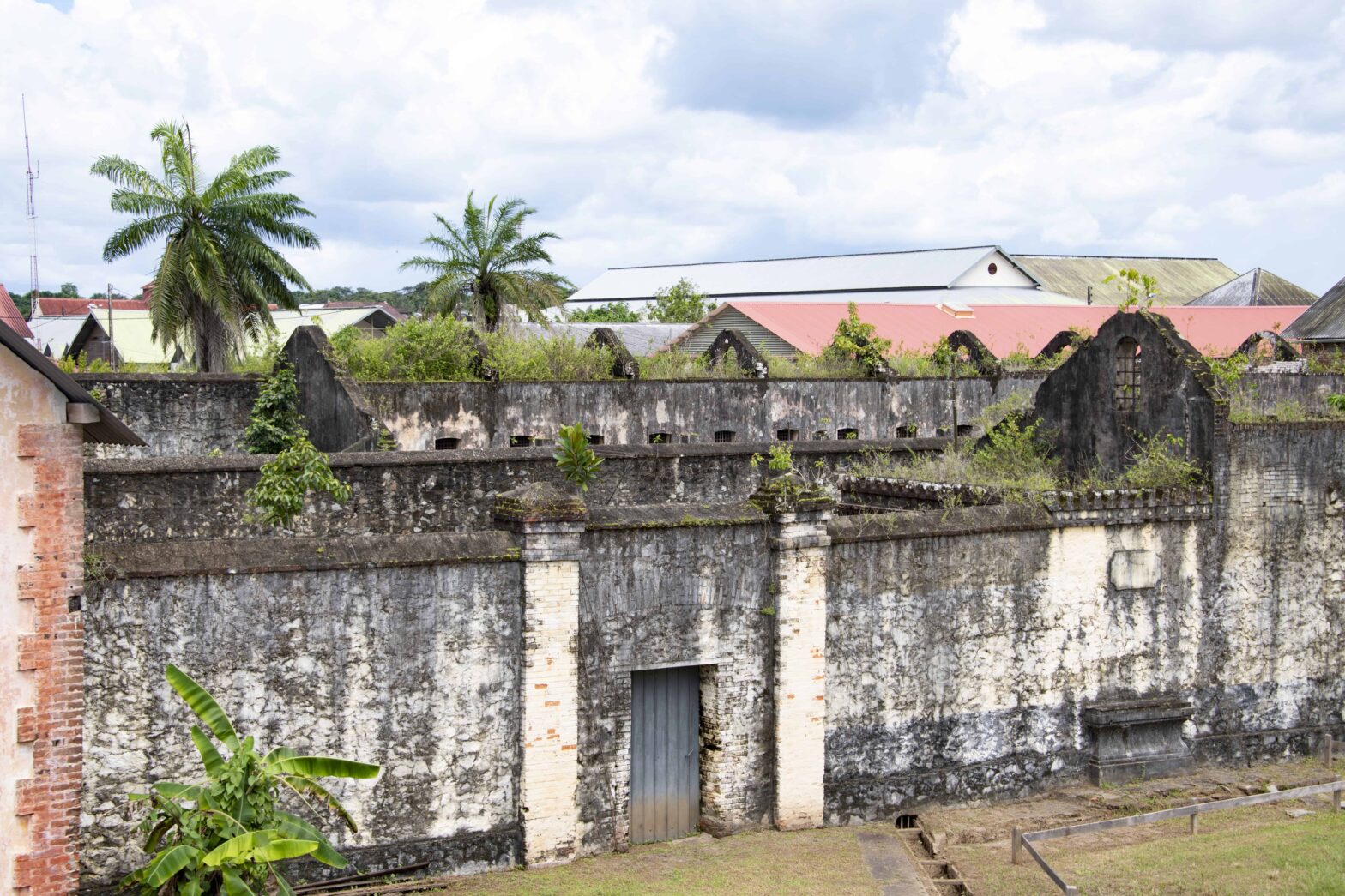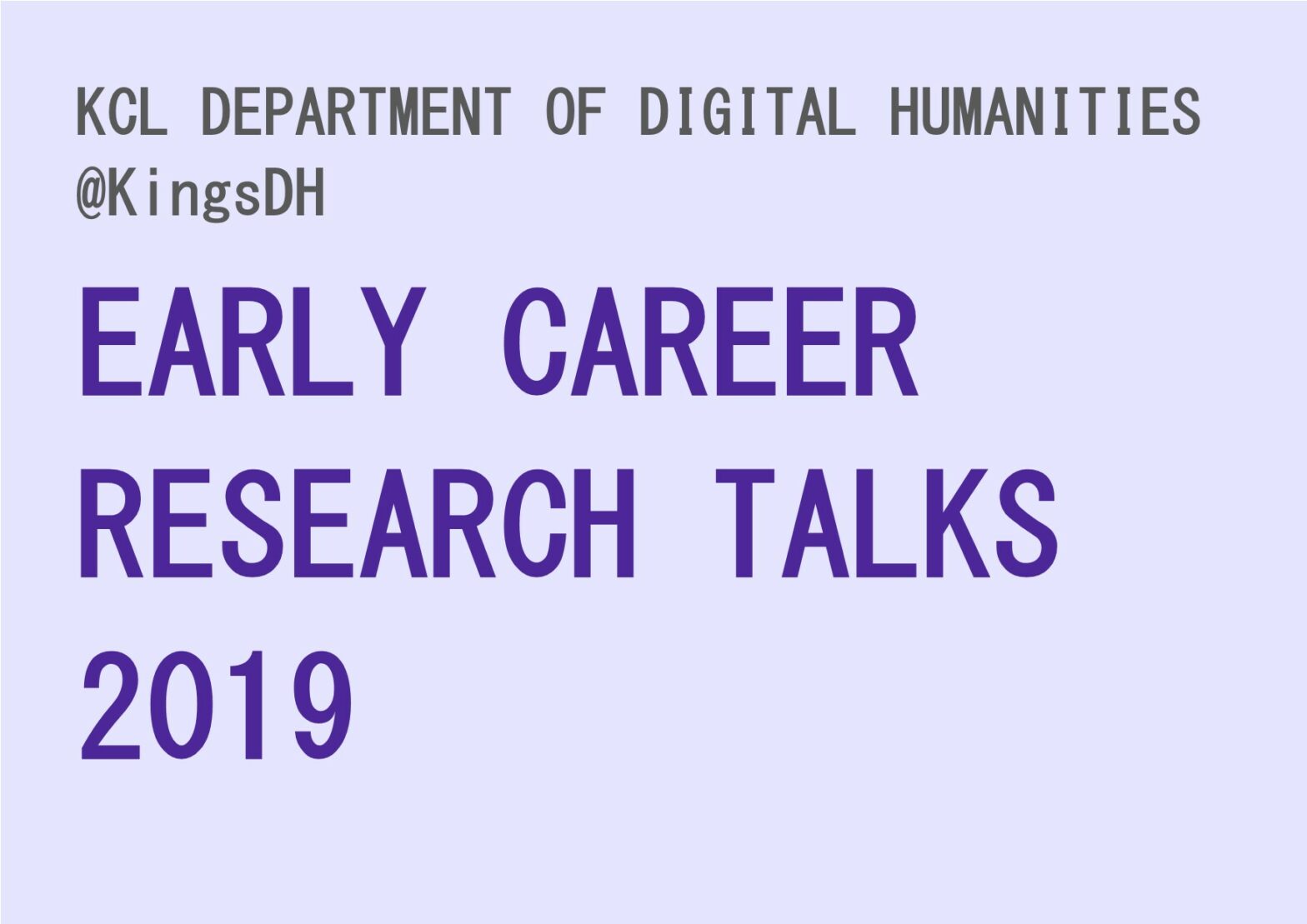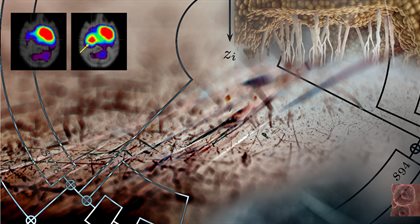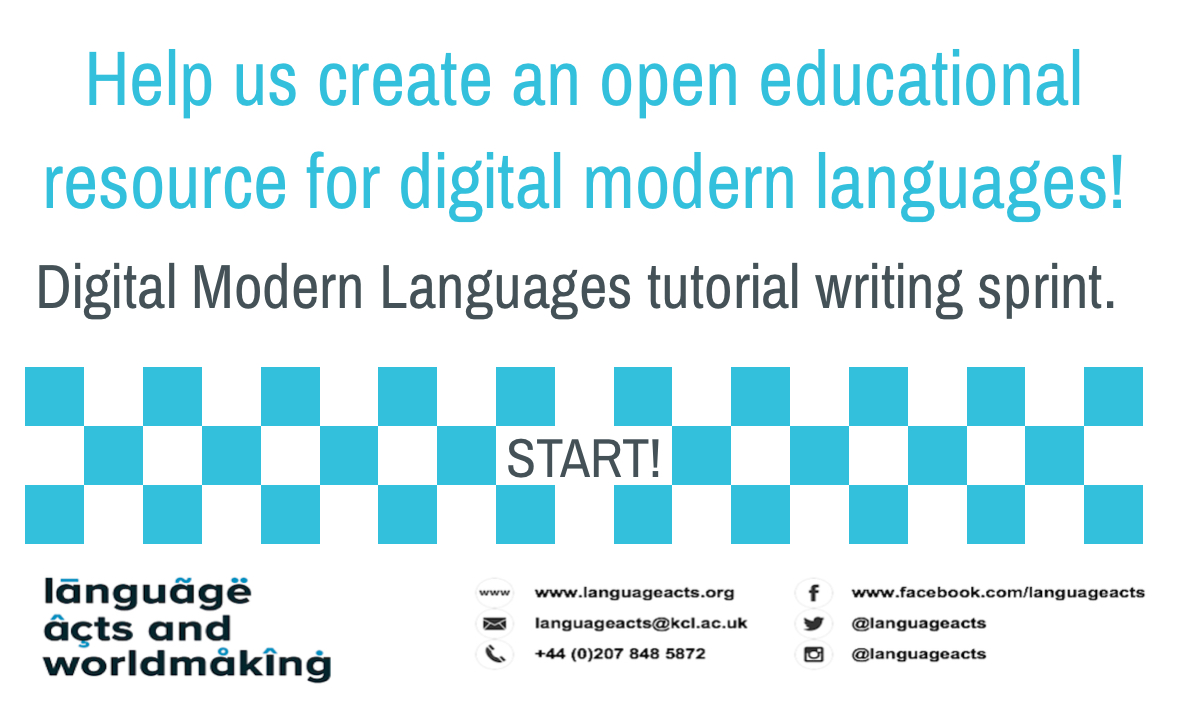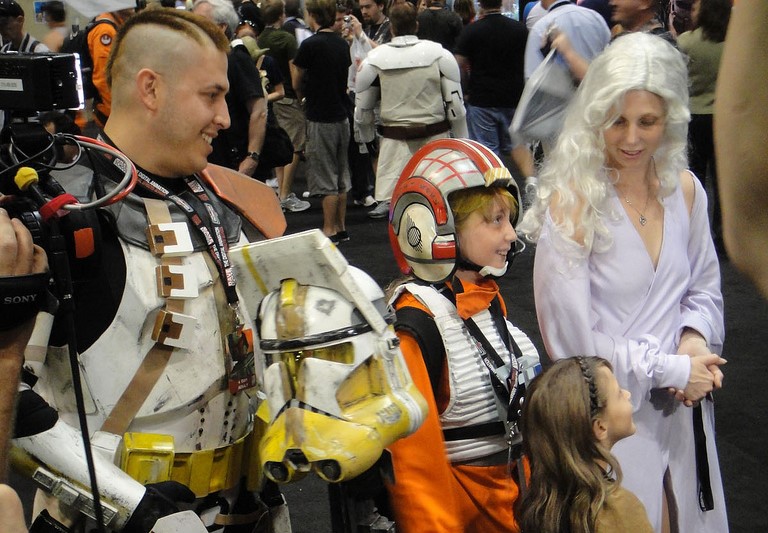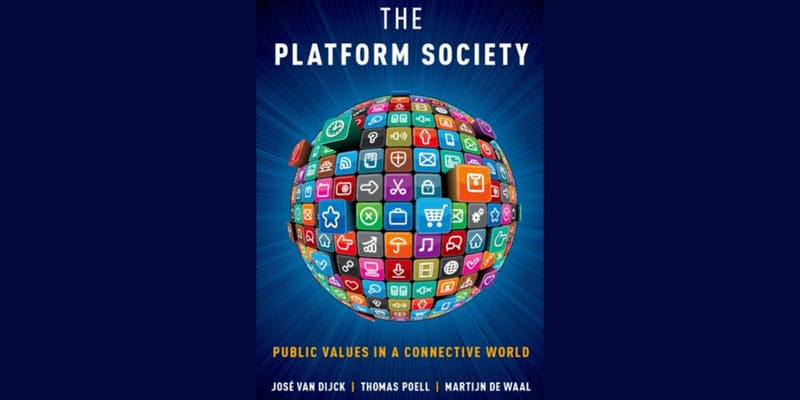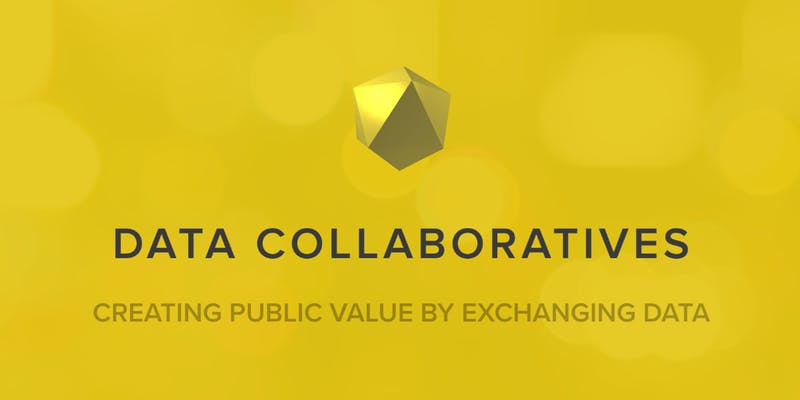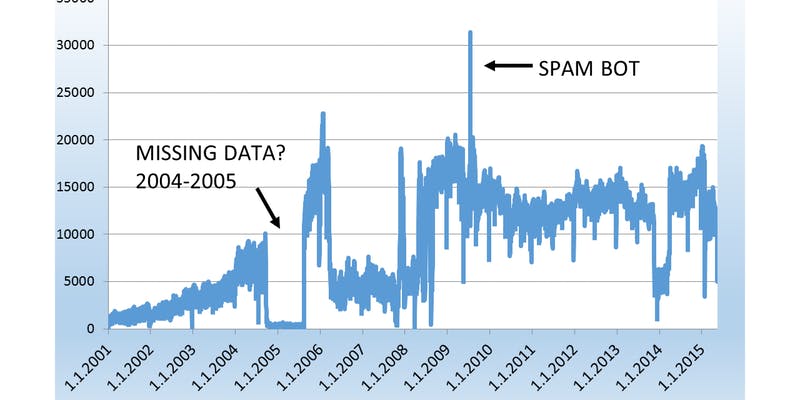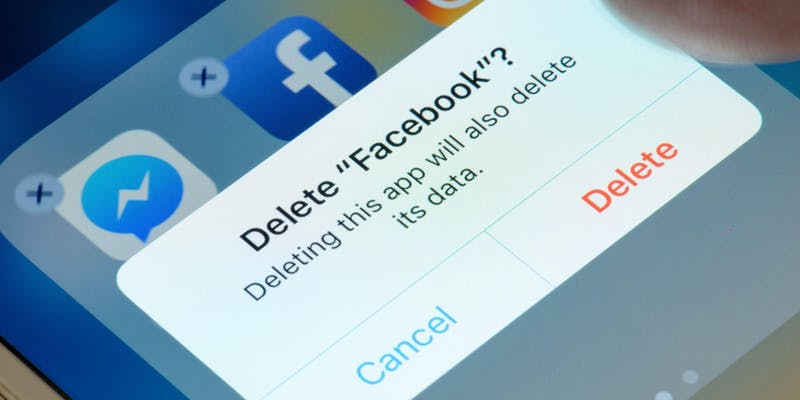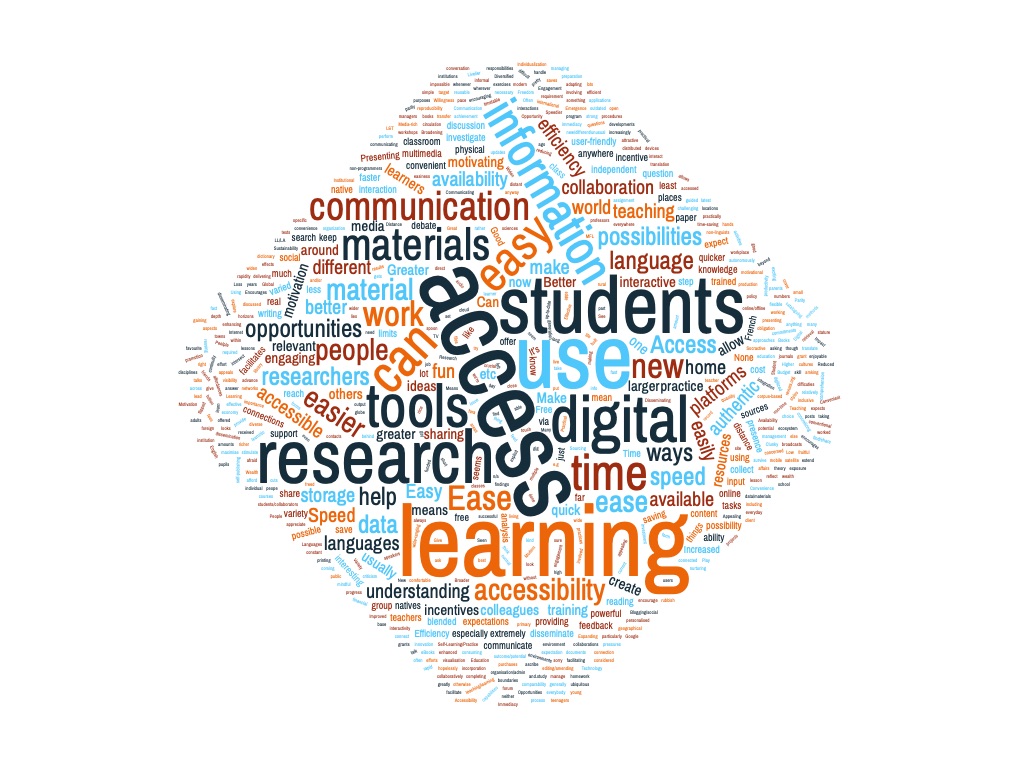Author archives: Feng Zhu
EVENT | Early Career Research Talks 2019
Join us for a series of Early Career Research Talks given by colleagues from the Department of Digital Humanities. There are seven in total, running between January 2019 and May 2019. For more details, please see the poster below. If you tweet about the event you can use the #kingsdhhashtag or mention @kingsdh.
Project | Technologically Fabricated Intimacy
Blending research-focused and performance-driven critique, the project addresses the implications of hyper-connectivity in intimate relations by looking at the mechanics of blockchain technologies applied to dating cultures. Dr Alessandro Gandini – academic lead Marija Bozinovska Jones – artistic lead Technologically Fabricated Intimacy – dating apps, gamification and blockchain technologies is a collaboration between King’s College London’s Department of …
Continue reading “Project | Technologically Fabricated Intimacy”
EVENT | DIGITAL MODERN LANGUAGES TUTORIAL SPRINT 2019
Colleagues working on the Language Acts & Worldmaking project have released a call for proposals for a ‘Digital Modern Languages tutorial writing sprint’, which aims to bring together language teachers, modern languages researchers and digital practitioners to create a collaborative Open Educational Resource. The event takes place over two days in July 2019 and will …
Continue reading “EVENT | DIGITAL MODERN LANGUAGES TUTORIAL SPRINT 2019”
EVENT | A Family Affair: Family, Love, and Emotioned Fannish Literacy 26.02.19
[three_fourths] As the second talk in the Early Career Research Talks series, Brittany Kelley will give a presentation entitled ‘A Family Affair: Family, Love, and Emotioned Fannish Literacy’. In the 25 years since the publication of Jenkins’ and Bacon-Smith’s foundational studies on media fandoms and fanfiction, fandom has achieved a much more mainstream status. Fan …
Continue reading “EVENT | A Family Affair: Family, Love, and Emotioned Fannish Literacy 26.02.19”
EVENT | The Platform Society 06.03.19
[three_fourths] How are online platforms involved in reshaping social, cultural, political and economic relations? How might they be governed and enlisted in the service of public values and the public good? Join us for a public talk with Thomas Poell (University of Amsterdam) about The Platform Society. The Platform Society Individuals all over the world …
EVENT | Data Collaboratives: The Emergence of Public-Private Partnerships around Data for Social Good 26.02.19
[three_fourths] What kinds of collaborations and partnerships are emerging around data? Join us for a public talk with Stefaan Verhulst (NYU GovLab), hosted by the Department for Digital Humanities, King’s College London. Data Collaboratives: The Emergence of Public-Private Partnerships around Data for Social Good – Stefaan Verhulst (NYU GovLab) Over the past few years, The …
EVENT | Broken Data and Unexpected Research Questions 13.02.19
[three_fourths] What can be learned when data work does not go as planned? Join us for a public talk with Minna Ruckenstein (University of Helsinki). Broken Data and Unexpected Research Questions – Minna Ruckenstein (University of Helsinki) The concept-metaphor of ‘broken data’ suggests that digital data can be broken, fail to perform, or be in …
Continue reading “EVENT | Broken Data and Unexpected Research Questions 13.02.19”
EVENT | #DeleteFacebook and Facebook’s Bonds 07.02.19
[three_fourths] #DeleteFacebook and Facebook’s Bonds – Tero Karppi (University of Toronto) After the Cambridge Analytica revelations, #DeleteFacebook hashtag became a trend. #DeleteFacebook was the crystallization of the demands to leave the social media site because it was compromising privacy, exploiting user data, and the connections it established could be used to manipulate the current political …
Continue reading “EVENT | #DeleteFacebook and Facebook’s Bonds 07.02.19”
New report published by the Language Acts and Worldmaking project 31.01.19
The Language Acts and Worldmaking project today published a report on ‘Attitudes towards digital culture and technology in the Modern Languages’. The report is based on a survey carried out by the Language Acts and Worldmaking project, one of four projects funded by the Arts and Humanities Research Council (AHRC) as part of its Open …
Continue reading “New report published by the Language Acts and Worldmaking project 31.01.19”

